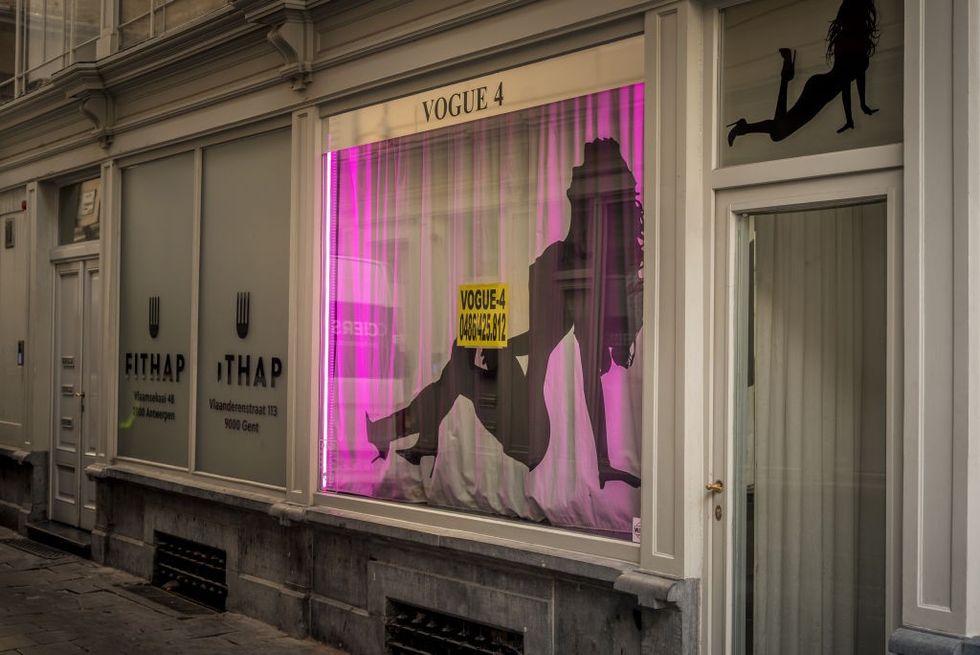Belgian prostitutes have been given full employment rights under a new law, which enables sex workers to claim social security and pensions.
The law has created a new category of employment which requires an official employment contract –travailleuses et travailleurs du sexe – or sex workers.
The new law includes prostitutes working part-time, as casual workers or while studying in higher education.
Employers will have to meet workplace safety requirements such as an emergency panic button to call for help.
Hygiene rules require that rooms must be at least 8sq m (86sq ft), equipped with clean bedding and bath linen, as well as condoms, access to a shower and toiletries.

Red Light Districts in the cultural city of Ghent
Getty
However, under the new rule, pimping remains illegal and anyone who employs prostitutes outside the scope of employment law will be prosecuted.
Belgium was the second country in the world to decriminalise prostitution, after New Zealand in 2003. The new legislation comes after years of campaigning from Belgian unions, who said sex workers require legal protections.
Director of Utsopi, the Belgian union for prostitutes, Daan Bauwens said: “We could never have dreamed that we would be here now. I think the most important thing is that we now make access to social security possible.
“This does not mean that we believe that sex work is work like any other, we are just saying that it must be recognised and treated as such by the state so that active people can benefit from adequate protection.”
LATEST DEVELOPMENTS

The new legislation has been brought in
Getty
However, the new law will not cover prostitutes who are undocumented migrants or who are not registered for residency or nationality. Critics claim the law also fails to help people, mainly women, who are ashamed of being prostitutes.
Isala, a Belgian group that works with prostitutes “against the system that exploits them in order to achieve gender equality and women’s rights” slammed the new legislation.
A statement from the group said: “For society, the message is dangerous but unequivocal: prostitution is now a ‘normal activity’, ‘a market like any other’”.
Bauwens said: “What we have not been able to resolve with this law are the stigmas and stereotypes about sex work…as long as it remains a stigmatised activity, shame and the fear of losing anonymity will remain obstacles.”

There are fears that this new law won’t change anything
Getty
In neighbouring Germany and the Netherlands prostitution is legal, as are brothels.
However, sex work is not fully decriminalised or a recognised trade that requires employment contracts.
In Sweden, France and other countries it is illegal for a client to pay for sex but not for the prostitute to sell it.
Prostitution is legal in Britain but most related activities, including brothels or pimping are illegal.